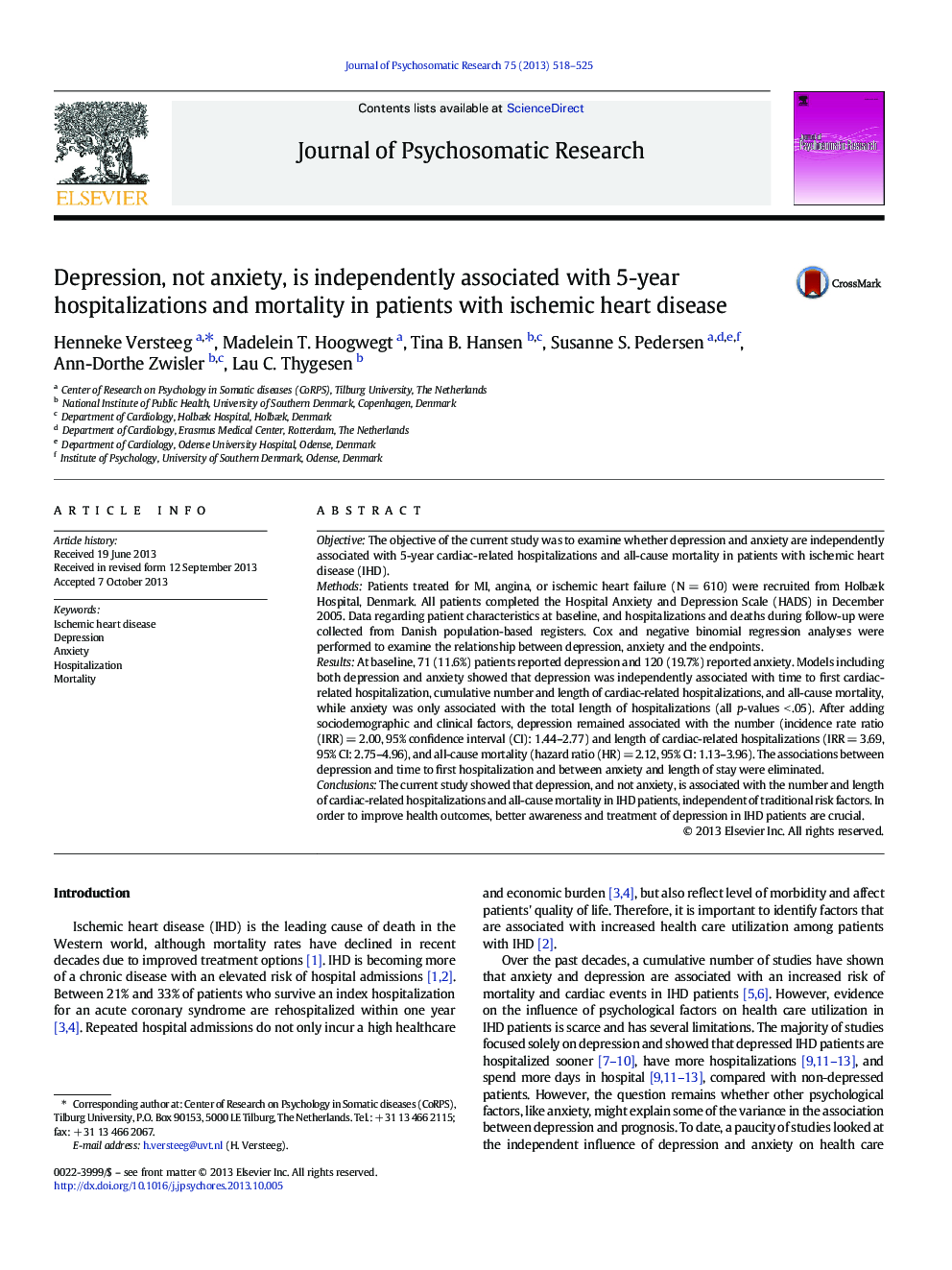| Article ID | Journal | Published Year | Pages | File Type |
|---|---|---|---|---|
| 949461 | Journal of Psychosomatic Research | 2013 | 8 Pages |
ObjectiveThe objective of the current study was to examine whether depression and anxiety are independently associated with 5-year cardiac-related hospitalizations and all-cause mortality in patients with ischemic heart disease (IHD).MethodsPatients treated for MI, angina, or ischemic heart failure (N = 610) were recruited from Holbæk Hospital, Denmark. All patients completed the Hospital Anxiety and Depression Scale (HADS) in December 2005. Data regarding patient characteristics at baseline, and hospitalizations and deaths during follow-up were collected from Danish population-based registers. Cox and negative binomial regression analyses were performed to examine the relationship between depression, anxiety and the endpoints.ResultsAt baseline, 71 (11.6%) patients reported depression and 120 (19.7%) reported anxiety. Models including both depression and anxiety showed that depression was independently associated with time to first cardiac-related hospitalization, cumulative number and length of cardiac-related hospitalizations, and all-cause mortality, while anxiety was only associated with the total length of hospitalizations (all p-values < .05). After adding sociodemographic and clinical factors, depression remained associated with the number (incidence rate ratio (IRR) = 2.00, 95% confidence interval (CI): 1.44–2.77) and length of cardiac-related hospitalizations (IRR = 3.69, 95% CI: 2.75–4.96), and all-cause mortality (hazard ratio (HR) = 2.12, 95% CI: 1.13–3.96). The associations between depression and time to first hospitalization and between anxiety and length of stay were eliminated.ConclusionsThe current study showed that depression, and not anxiety, is associated with the number and length of cardiac-related hospitalizations and all-cause mortality in IHD patients, independent of traditional risk factors. In order to improve health outcomes, better awareness and treatment of depression in IHD patients are crucial.
